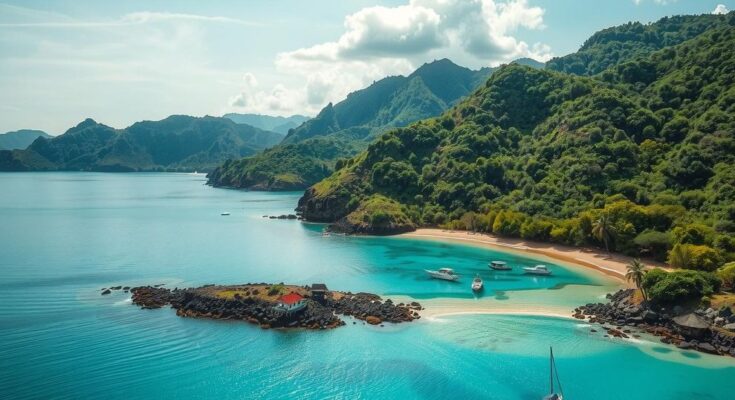Ado-Awaye, with its suspended lake, showcases Nigeria’s rich but underdeveloped tourism potential. Despite its attractions, only 3,000 visitors frequent the site annually, primarily due to economic challenges and poor infrastructure. In comparison to other countries, Nigeria’s tourism figures remain low, signaling the need for improved promotion and investment to attract global visitors and enhance travel offerings.
Nestled atop the Ado-Awaye hills, the Iyake lake stands at an impressive altitude of 433 meters, steeped in local lore that imbues it with mystical significance. Despite its remarkable features and annual attractions, such as the religious pilgrimages and the modest annual visitor count of approximately 3,000, the site exemplifies Nigeria’s broader tourism struggles. Economic constraints have diminished pilgrimage attendance this year, demonstrating a stark contrast to more renowned tourist destinations globally.
Nigeria harbors immense tourism potential, boasting a wealth of cultural experiences, natural beauty, and vibrant festivals. From the Kano Durbar festival in the north to tranquil beaches along the Gulf of Guinea, the country presents diverse attractions that could draw significant tourism. In recent years, however, insecurity and insufficient infrastructure have hindered growth in this sector, leading to only 1.2 million visitors in 2023, a meager figure compared to South Africa and Kenya.
The lack of world-class accommodation and integrated tourism offerings further undermines Nigeria’s appeal. Experts suggest that a cohesive strategy to promote local attractions and enhance hospitality services is necessary. The absence of proper funding and development in tourist sites like Ado-Awaye calls for government intervention to improve visitor experiences.
Narrows of societal interests have shifted away from tourism, with younger generations showing greater inclination towards lucrative oil-related careers over hospitality and heritage preservation. This trend, coupled with the decline of formerly prosperous tourist sites and events, illustrates the urgent need for a revitalization of Nigeria’s tourism culture.
Ultimately, creating a sustainable and appealing tourist environment requires a top-down approach where policymakers actively support and promote tourism initiatives. Historical efforts to enhance Nigeria’s global image have lacked coordination, signaling a need for a comprehensive campaign to position Nigeria as a significant player in international tourism.
Nigeria is a nation rich in cultural and natural attractions, yet it struggles to convert this potential into a thriving tourism industry. Ado-Awaye, home to a unique suspended lake, exemplifies this paradox. Despite its enchanting qualities, the site attracts few visitors annually, as broader economic challenges and infrastructural deficits hamper tourism growth. Comparatively, countries such as South Africa and Kenya thrive in the tourism sector, indicating a significant opportunity for Nigeria to improve its offerings and attract more visitors to its vast array of sites and experiences.
In conclusion, Nigeria possesses a wealth of untapped tourism potential that, if cultivated through better infrastructure, promotion, and government support, could bolster the country’s economy and enhance its international standing. The dual challenges of security and inadequate hospitality services impede progress, but with strategic investments and a renewed focus on preserving and promoting Nigeria’s diverse attractions, the nation could significantly improve its tourism landscape.
Original Source: www.theguardian.com




